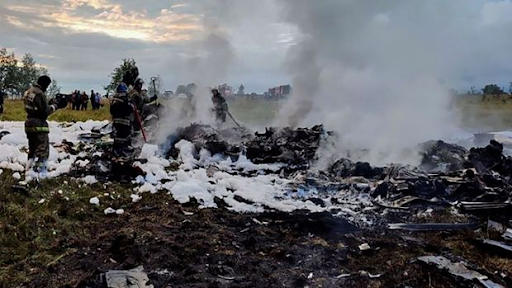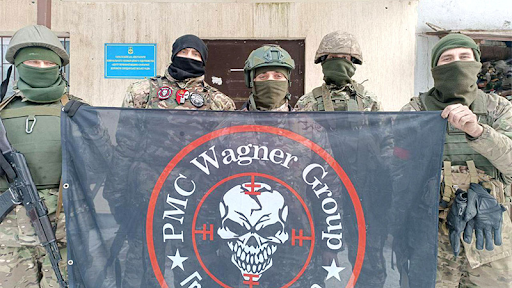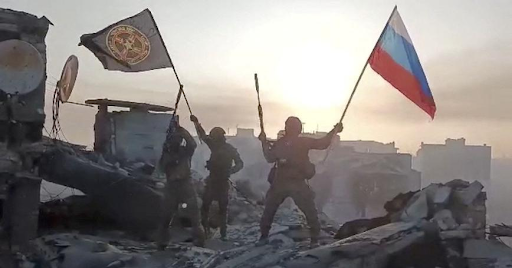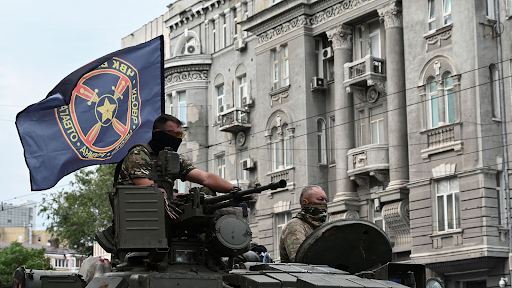
In a tragic turn of events, the death of Yevgeny Prigozhin, the leader of the notorious Wagner private military company, has left this shadowy organisation facing an uncertain future. This article explores the profound implications of Prigozhin’s demise on the Wagner group and its role in Russia’s military endeavours, particularly in Syria, Africa, and Ukraine.
The Plane Crash and Its Consequences
On a fateful day, a plane carrying Yevgeny Prigozhin and Dmitry Utkin, the presumed true military head of the Wagner group, crashed, claiming the lives of all ten individuals on board. This incident, which occurred in August, sent shockwaves through the clandestine world of private military contractors. It effectively decapitated the Wagner group, leaving a vacuum of leadership and an atmosphere of uncertainty.

Before the June mutiny, Wagner had an impeccable record of loyalty to the Russian state. The group carried out Moscow’s interests in various regions, including Syria, Africa, and Ukraine. Their missions extended beyond conventional military activities, encompassing a wide range of sectors, from information warfare to economic and political endeavours. As Stephen J. Blank, a Russia expert, points out, Wagner provided Russia with what could be termed as “government in a box” services abroad.
The Value of Wagner to Russia
The benefits Russia derived from Wagner were so substantial that experts believe President Vladimir Putin is unlikely to dissolve the organisation entirely. Wagner served as a cost-effective means for Putin to project power, especially in Mali and the Central African Republic, while maintaining a degree of deniability. The group played a pivotal role in Putin’s strategy to strengthen ties with African countries, evade Western sanctions, and bolster Russian forces.
Rama Yade, director of the Africa Center at the Atlantic Council, emphasised Africa’s significance in Putin’s broader strategy, where Wagner played a central role. However, Prigozhin’s uprising prompted a reevaluation of Russia’s partnership with African nations.

The Future of Wagner: Integration with the Russian Army
In the short term, it is believed that Russian military commanders will step in to assume the positions left vacant by Prigozhin and Utkin. They will likely attempt to integrate Wagner into the regular Russian Army, aligning it with state leadership for missions in Africa and other regions. This shift reflects a struggle over control of foreign-based assets that had previously benefited Prigozhin and the Kremlin.
The fate of Wagner fighters remains uncertain. They may face a dilemma of whether to remain loyal to the group’s old leadership or embrace the new command structure. Blank speculates that many may choose to depart, but those who stay are likely to pledge their allegiance to the new leadership.
As for the group’s potential return to Ukraine, it may only happen under the condition that they operate under the authority of army commanders, signifying a shift in their role and responsibilities.

The Impact of Leadership Loss
One consensus among experts is that the death of Wagner’s leaders constitutes a significant blow to the group’s effectiveness. Prigozhin’s absence has left the organisation unable to function autonomously. Without his resource network, it will be challenging for the group to recreate the level of effectiveness it once possessed. The absorption of Wagner into the Russian military may struggle to replicate Prigozhin’s success.
Wagner’s Prospects in Belarus
Many Wagner fighters found themselves in Belarus following the failed June mutiny. Belarusian President Alexander Lukashenko, in defiance of calls from Poland and Baltic states to expel the group, has pledged to allow them to stay. This stance has sparked speculation that the Russian Defense Ministry’s foreign trips to African nations with known Wagner presence indicate Russia’s intention to replace Wagner with its own formations, directly under military control.

The Silence Surrounding the Plane Crash
Curiously, Wagner’s official media outlets and affiliated channels, as well as its fighters, have remained mostly silent or focused solely on mourning their fallen leaders since the plane crash. Surprisingly, there is little speculation about the possible cause of the crash, despite widespread suspicions that it might have involved foul play from the Kremlin.
A Fondness for Wagner Persists
Despite the uncertainty surrounding Wagner’s future, many Russians continue to hold the group in high regard. Spontaneous memorials have sprung up across the country, demonstrating a lingering affection for the organisation. In a striking example of this sentiment, a school in Balashikha, near Moscow, was renamed after a Wagner fighter who lost his life in the line of duty.
In conclusion, the death of Yevgeny Prigozhin has cast a shadow of uncertainty over the Wagner group’s future. While its value to Russia remains evident, the loss of leadership and the challenges of integration into the Russian Army present formidable obstacles. As the group navigates this critical juncture, the world watches with anticipation, wondering how this enigmatic mercenary organisation will adapt to a post-Prigozhin era.





